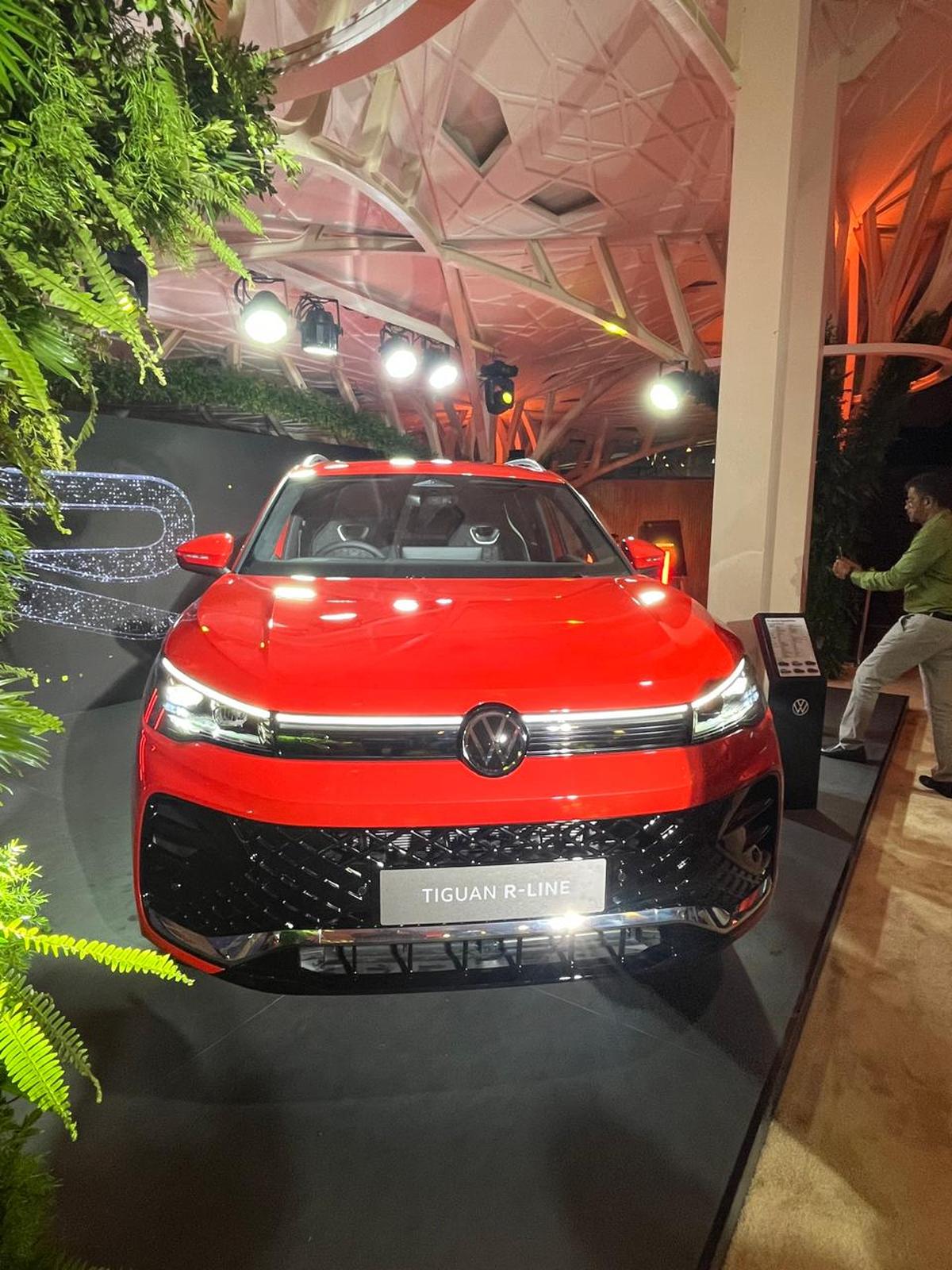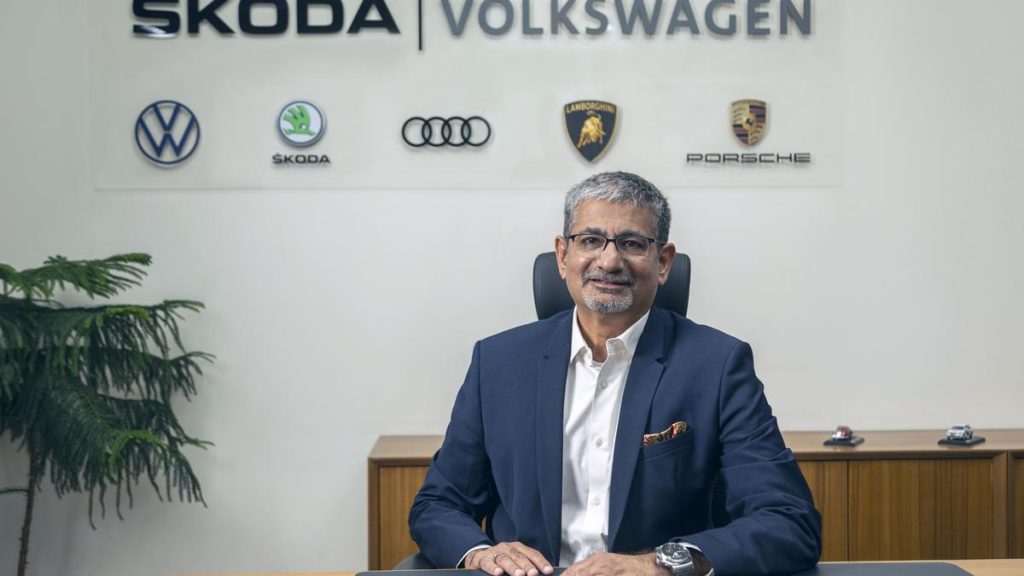
Volkswagen India launched Tiguan R-Line SUV which is priced at ₹49 lakh (ex showroom introductory price).
| Photo Credit:
Special Arrangement
Even though U.S. President Donald Trump has paused reciprocal tariffs on about 70 countries for 90 days and the U.S. and China have gone in for a competitive tariff war to outbid each other, a top executive of European auto giant Volkswagen Group said adding such measures were against free trade and would disrupt global supply chains.
“Volkswagen group has exposure to lot of geographies even China and North America. The U.S. is one of the major markets, so of course it will have impact for our group globally, for certain brands more, certain brands less,” Piyush Arora, Managing Director & CEO, Skoda Auto Volkswagen India Pvt. Ltd. said in an interview with The Hindu on the sidelines of Volkswagen India launching Tiguan R-Line SUV which is priced at ₹49 lakh (ex showroom introductory price).
“First of all tariffs are not good. As a global company I can say that we are proponents of free trade and from that point of view, we have been always supporting the discussion between India and EU on a free trade agreement (FTA) and we continue to do so,” he emphasized.
“But the discussions have not progressed much in the past but may be the present challenges [tariff war] which are being posed by the U.S. administration might be a catalyst to hasten those processes. We will have to see how things evolve and how things get settled. Then we can assess what are the impacts [of the tariff war],” he said.
Mr Arora, who heads five brands of the Volkswagen Group namely Skoda Auto, Volkswagen, Audi, Porshe and Lamborghini in India and the local manufacturing operations, said as a group in India, it did not export to the U.S. and so would be less impacted.
“Our exports are to 40 different countries, fortunately U.S. is not one of them. I do believe that when you have within the group and in global supply chain some amount of disruptions, there would be some impact indirectly which will be coming to us as well in India because today automotive supply chains are free flowing,” he pointed out.
“Finally at the end of the day, you have not really de-linked yourself with the geographies. We have seen this during Covid time as well. While the purchasing organisation strategy are becoming to de-link dependence on certain geographies but you have not really achieved that target that where you can be independent of certain geographies,” he added.
“So indirect effect would definitely be there but in terms of our exporting cars and our export of parts and components to South East Asia, I think at this point of time, they are not affected,” he stated.
Regarding the classification dispute and ongoing case in Mumbai High Court concerning the $1.4 billion tax demand by Indian tax authorities, he said the group had been doing this business for last two decades in the similar way.
“We abide by the regulations, not only in India but globally as well, and we will continue to do that and we will continue to evaluate the remedies which are available.”
In the just concluded financial year the Volkswagen Group reported 2% growth including domestic sales and exports, he said.
“In the last quarter of last financial year, I would say that there has been good amount of growth which was driven by products. Last year we did consolidate our position and made a foundation which for us would be beneficial in 2025 and beyond,” he mentioned.
“From that point of view, I do see while there are signs of not multiple-digit growth which we have seen in the industry in the last 3-4 years, it is moderating but the base is big. So we are looking optimistically though the present uncertainty throws some challenges right now,” he highlighted.
Mr. Arora said the Group’s medium-term goal was to gain 5% market share. “We are inching towards 3% at this point in time, so that is our medium term game,” he added.
He said the Group would need to expand its portfolio not only in the ICE vehicle segment but also in the electric vehicle segment. “We have already started on a journey to identify what product as electric vehicle we can bring it into the country and this will also as a next step of further bringing in product into the market and gain more market share,” he said.
On Monday Volkswagen introduced Tiguan R-Line, a luxury SUV that would compete with Toyota’s Fortuner among others. About 4,500 units of such SUVs priced at around Rs 50 lakh are sold in India per month out of which 3,500 are Fortuners. Volkswagen is eyeing some share of this premium but growing segment.
Ashish Gupta, Brand Director, Volkswagen India, said, “With the launch of the all-new Tiguan R-Line today, we are entering an exciting phase for Volkswagen in India, a phase that embodies the future of premium mobility from Volkswagen.’
Deliveries will start from April 23, the company said.
Published – April 14, 2025 07:47 pm IST

